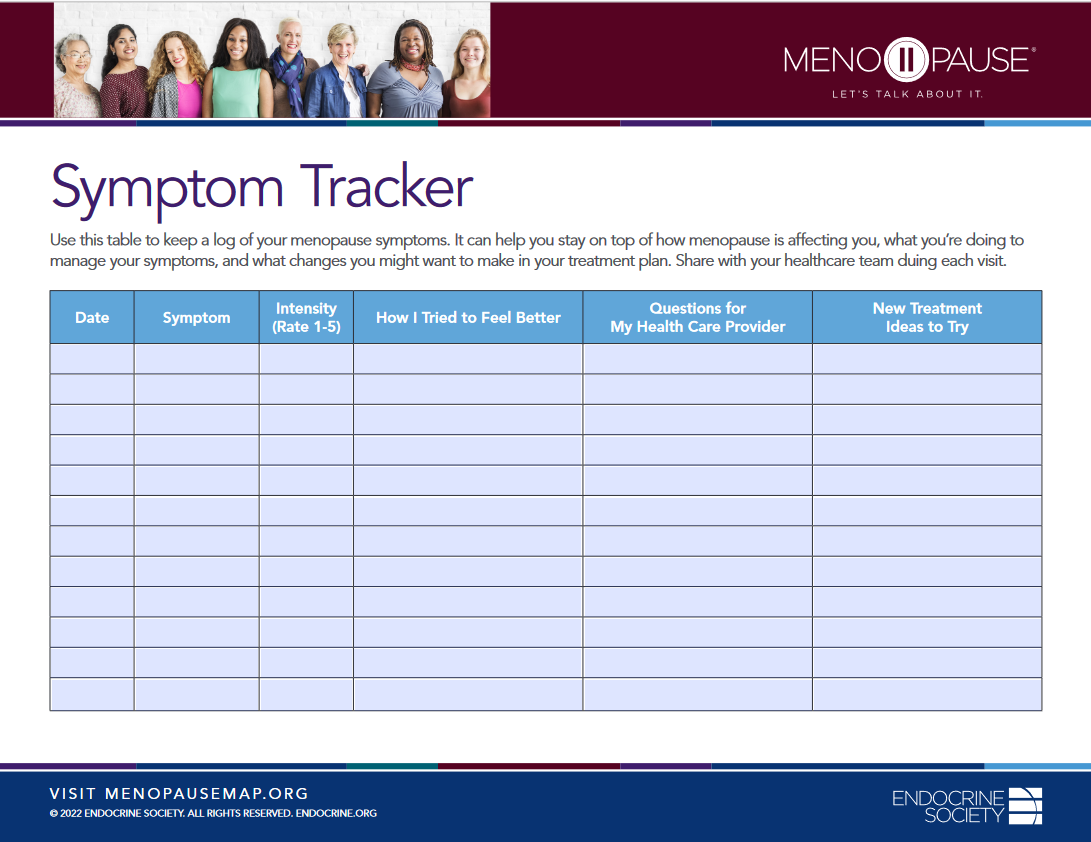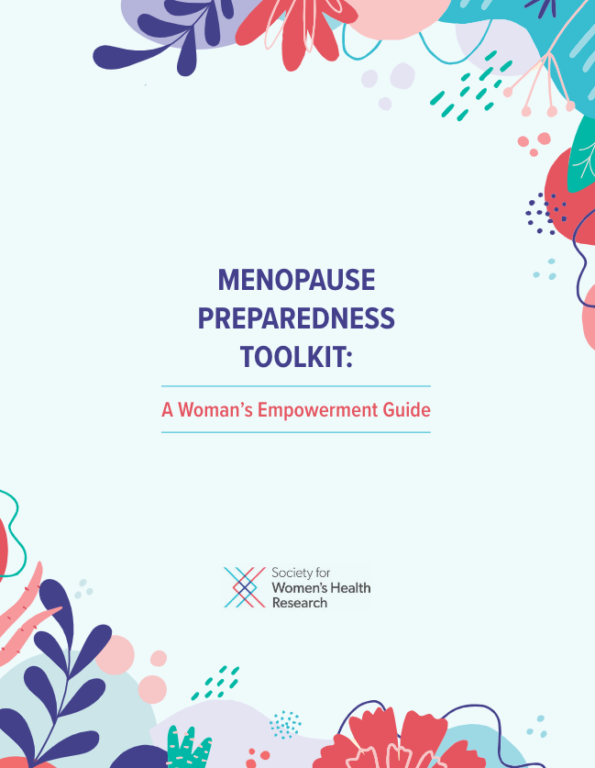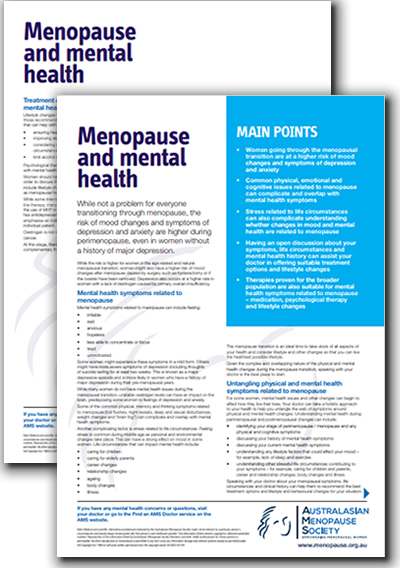“There are many ways to manage and treat menopausal
symptoms, depending on your own unique experience.
You might try different options before finding…”.1
Umbrella
What may the Menopause Management Umbrella include?
Depending on the Source (DotS) this Umbrella may include:
- Healthy Menopause
- Menopause Management
- Menopause Management Choices/Options/Steps/Strategies/Tips
- Menopause Self Management Strategies
- Menopause Treatments
Different Differences
Is menopause symptom management one-size-fits-all?
In Menopause Management Options the (Australian) Jean Hailes for Women’s Health (JH) explain:
Healthy Lifestyle
Can a healthy lifestyle improve menopause symptoms?
In Looking After Yourself the JH note:
In The 2023 Practitioner’s Toolkit for Managing Menopause: Management – Considerations for All Women At Menopause, published online 30 October 2023, the authors explain:
On page one in the Joint Position Statement By the British Menopause Society, Royal College of Obstetricians and Gynaecologists and Society for Endocrinology on Best Practice Recommendations for the Care of Women Experiencing the Menopause, first published online 10 June 2022, the recommendations include:
- “Women should be advised that implementing or maintaining a healthy lifestyle can improve menopause symptoms. A healthy diet (one low in saturated fat and salt and rich in calcium and vitamin D), stopping smoking, reducing alcohol intake and including regular exercise can be beneficial. Reducing caffeine intake may also improve symptoms.
- Alternative therapies, including cognitive behavioural therapy, may also improve hot flushes, nights sweats and other menopausal symptoms and can be considered in women who do not wish to take HRT or have contraindications to taking HRT”.5
Symptom Management
What is some general advice for symptom management?
In The 2023 Practitioner’s Toolkit for Managing Menopause: Management – Considerations for All Women At Menopause: General Advice for Symptom Management the authors explain:
- “Overweight and obesity, and smoking are risk factors for VMS. Weight reduction may result in reduced VMS in overweight women, and smoking cessation should be encouraged
- Exercise, yoga and relaxation methods have not been found to be effective for VMS, but these activities may improve sleep and general well-being”.6
What is VMS?
VMS can be an abbreviation for Vasomotor Symptoms.
Treatments
What are some treatments to improve menopause symptoms?
In Menopause: Diagnosis & Treatment – Treatment the (United States) Mayo Clinic elaborate on:
- Hormone Therapy…
- Vaginal Estrogen…
- Low-Dose Antidepressants…
- Gabapentin (Gralise, Horizant, Neurontin)…
- Clonidine (Catapres, Kapvay)…
- Fezolinetant (Veozah)…
- Medications to prevent or treat osteoporosis”.7
Hormone Therapy
Is hormone therapy the most effective treatment to alleviate VMS?
In The 2023 Practitioner’s Toolkit for Managing Menopause: Management – Considerations for All Women At Menopause: Menopausal Hormone Therapy the authors elaborate on:
There is general consensus on the following: …”.8
Questions To Ask
What are some questions to ask about menopause management?
In the NICE Guideline Menopause: Diagnosis and Management – Information for the Public: Questions To Ask About Menopause the National Institute for Health and Care Excellence (NICE) include questions to ask about:
- “Diagnosis…
- About Menopause…
- About Premature Menopause (Premature Ovarian Insufficiency)…
- Lifestyle…
- Treatment for Menopausal Symptoms…
- For Family Members, Friends or Carers…”.9
Health Care Provider
What if I would like help with my menopause management?
If you would like help with my menopause management, it may be in your best interest to choose to talk to your health care provider about this.
In What Is Menopause? When To See Your Doctor the JH also note:
 “Talk to your doctor if you are worried about:
“Talk to your doctor if you are worried about:
- Irregular periods
- Heavy bleeding
- Bleeding after menopause
- Increase Premenstrual Syndrome (PMS) symptoms
- Menopausal symptoms, such as hot flushes, that interfere with your daily life”.10
In Menopause: Diagnosis & Treatment – Treatment the Mayo Clinic also encourage us to seek help:
In The Menopause: Conclusions the (British) Women’s Health Concern also note:
Above all, bear in mind that your health is your responsibility and that you are in charge. This is a time when your body deserves some tender loving care”.12
Who is a GP?
Dots and/or DotC (Depending on the Country) a GP may be a registered general practitioner, a medical practitioner, a medical doctor or a doctor.
Health Topics A-Z
Where may I find Health Topics A-Z related to Menopause Management?
In Health Topics A-Z you may find:
Links
Where may I find Links related to Menopause Management?
Your Country may have Links similar to:
Links
This Links List to third party websites is neither comprehensive nor exhaustive. Inclusion on this Links List does not imply endorsement or recommendation. Non-inclusion on this Links List does not imply non-endorsement or non-recommendation. Third party websites are not under the control of Meno Martha International Menopause Directory. Third party websites may contain explicit medical images and/or sexual references. Please read Meno Martha International Menopause Directory’s Links Policy before proceeding to a Link. Please contact Webmaster if you experience a problem with a Link.New or Updated
- CAMS Menopause Hour: A Practical Approach To the Management of Menopause [28 March 2024] [Council of Affiliated Menopause Societies]
- Tips To Help Manage Menopause Symptoms
- Video Series-2024: Preparing for Your Menopause Health Care Visit [13 January 2024]
- Videos and Podcasts: Videos – Interviews: A Simple Approach To Menopause: The Menopause Quick Six (www.MQ6.ca)
- Videos & Podcasts: Videos – Interviews: Metabolic Syndrome in Midlife Women [April 2024]
- Webinars: Previous – Non-Hormonal Pharmacological Interventions For VMS
- A Pragmatic Approach To the Management of Menopause
- ACOG Explains: Managing Menopause Symptoms [American College of Obstetricians and Gynecologists] [October 2023]
- Askearlymenopause.org [Ask EM] [+ Video: What Is Early Menopause?]
- BMS Statement on Testosterone [British Menopause Society]
- BMS TV: Bioidentical Hormones
- BMS TV: Hormone Replacement Therapy (HRT)
- BMS TV: Menopause Explained
- BMS TV: Menopause – Weight Gain, Nutrition and Lifestyle
- BMS TV: Testosterone Explained
- Bioidentical Hormones: Are They Safer?
- CAMS Menopause Hour: A Practical Approach To the Management of Menopause [Council of Affiliated Menopause Societies]
- Cognitive Behaviour Therapy (CBT) for Menopausal Symptoms
- Compounded Bioidentical Hormone Therapy [Video]
- Deciding About Hormone Therapy Use
- Dr Louise Newson: The Truth About the Menopause & HRT
- Emotional Wellness In Menopause
- Find A Menopause Practitioner [United States and Other]
- Find An AMS Doctor [Australasian Menopause Society i.e. Australia and New Zealand]
- Find Your Nearest BMS Menopause Specialist [British Menopause Society]
- Hormone Replacement Therapy (HRT)
- Hormone Therapy: Is It Right for You?
- Hot Flashes: What Can I Do? [+ Video: What Are the Signs and Symptoms of Menopause?]
- I Forgot To Ask the Doctor – E9: The Menopause: Can Every Woman That Wants It Have HRT?
- Is Menopause Making Me Put on Weight? No, But It’s Complicated
- Later Years (Around 50 Years and Over): Menopause and Post Menopause Health – Early and Premature Menopause [+ Video: Menopause Only Happens In Your 50s]
- Later Years (Around 50 Years and Over): Menopause and Post Menopause Health – Menopause [+ Video: Menopause]
- Later Years (Around 50 Years and Over): Menopause and Post Menopause Health – Menopause and Your Mental Wellbeing [+ Video: Menopause Only Affects You Physically!]
- Later Years (Around 50 Years and Over): Menopause and Post Menopause Health – Signs and Symptoms of Menopause [+ Video: Talking Menopause With Your GP]
- Let’s Talk About Perimenopause
- Management of Menopausal Symptoms: A Review
- Management of Menopause
- Managing Menopause
- Managing Menopause Symptoms With Nutrition and Diet
- Mastering Midlife Mood Changes With Marlene Freeman, MD
- Mayo Clinic Minute: Help With Hot Flashes Due To Menopause [+ Video Courtesy: Mayo Clinic News Network]
- Mayo Clinic Minute: How Lifestyle Changes May Help Manage Menopause Symptoms [+ Video]
- Menopause
- Menopause
- Menopause
- Menopause
- Menopause Fact Sheet
- Menopause Management Options
- Menopause Map: Downloadable Resources – My Personal Path Print Tools: Questions for Your Health Care Provider

- Menopause Map: Downloadable Resources – My Personal Path Print Tools: Symptom Tracker

- Menopause Mindfulness: Embracing the Change of My Midlife
- Menopause Mindfulness: Living Your Best Work-Life Through the Menopause Transition
- Menopause Patient Information [Videos] 2. Talking To Your GP About Menopause
- Menopause Patient Information [Videos] 5. Lifestyle Advice In Menopause & Perimenopause
- Menopause Preparedness Toolkit Video Series: Lifestyle Tips for Menopause
- Menopause Preparedness Toolkit Video Series: Mindfulness & Wellbeing During the Menopause Transition
- Menopause Preparedness Toolkit Video Series: Treating Vasomotor Symptoms of Menopause
 Menopause Preparedness Toolkit: A Woman’s Empowerment Guide
Menopause Preparedness Toolkit: A Woman’s Empowerment Guide- Menopause Symptoms and Relief
- Menopause Symptoms: Mayo Clinic Expert Outlines Hormone and Nonhormonal Therapies
- Menopause Treatments
- Menopause Treatments: What Works, What Doesn’t
- Menopause Wellness Hub
- Menopause What Are the Symptoms?
- Menopause and Mental Health
 Menopause and Natural Therapies
Menopause and Natural Therapies- Menopause, Perimenopause, Hormone Therapy and Other Treatments With Madelyn Butler, MD [Podcast]
- Menopause: Diagnosis & Treatment
- Menopause: Diagnosis and Management – Information for the Public: Questions To Ask About Menopause [NICE Guideline]
- Menopause: Ensuring A Tranquil Transition
- Menopause: Things You Can Do
- Menopause: Understanding the Changes and Finding Relief | Dr Susan Davis | The Proof Podcast EP 256
- Mood and the Menopause
- Mymenoplan.org [My Menoplan, United States]
- National Center for Complementary and Integrative Health: Herbs At A Glance
- National Center for Complementary and Integrative Health: How Safe Is This Product or Practice?
- Navigating Menopause: Expert Insights and Solutions | Dr Susan Davis | The Proof Podcast EP 245
- Night Sweats
- Non-Estrogen Treatments for Menopausal Symptoms
- Nonhormone Treatments for Hot Flashes and Night Sweats
- Perimenopause and Menopause Symptom Checklist

- Prosayla Supported By ISSWSH [International Society for the Study of Women’s Sexual Health]
- Symptoms of Menopause
- The Menopause [Multiply Languages]
- The 2023 Practitioner’s Toolkit for Managing Menopause
- The Reality of Menopause Weight Gain
- The Truth About Menopause Supplements | Dr Sarah Berry
- Therapy for the Effects of Menopause
- Tips To Help Manage Menopause Symptoms
- Using Natural Therapies In the Menopause Transition – Webinar
- Vaginal Dryness
- Vaginal Dryness: What To Do About It
- Video Series-2022: Hormone Therapy: Understanding the Risks and Benefits
- Video Series-2023: NAMS 2023 Nonhormone Therapies Position Statement for Bothersome Menopause Symptoms
- Video Series-2023: New FDA-Approved Nonhormone Option for the Treatment of Hot Flashes
- Video Series-2023: Premature and Early Menopause
- Video Series-2024: Preparing for Your Menopause Health Care Visit
- Videos and Podcasts: Videos – Interviews: A Simple Approach To Menopause: The Menopause Quick Six (www.MQ6.ca)
- Videos & Podcasts: Videos – Interviews: Metabolic Syndrome in Midlife Women
- Videos & Podcasts: Videos – Interviews: Preventing Bone Loss At Menopause
- Webinars: Previous – Approach To Bone Health In the Perimenopause and Postmenopause?
- Webinars: Previous – Non-Hormonal Pharmacological Interventions For VMS
- What Doctors Wish Patients Knew About Menopause
- What Is Menopause? [+ Video]
- What Everyone Should Know About Menopause Symptoms
- Why Didn’t Anyone Tell Me This? Episode 3: Dr Annice Mukherjee: Your Essential Menopause Toolkit
Sources
Where may I find the Sources quoted above?
You may find the Sources at:
Sources
- Menopause Management Options. Last Updated: 19 December 2023 | Last Reviewed: 19 August 2022. Jean Hailes https://www.jeanhailes.org.au/health-a-z/menopause/menopause-management Accessed: 08 April 2024
- Menopause Management Options. Last Updated: 19 December 2023 | Last Reviewed: 19 August 2022. Jean Hailes https://www.jeanhailes.org.au/health-a-z/menopause/menopause-management Accessed: 08 April 2024
- Looking After Yourself. Last Updated: 19 January 2024 | Last Reviewed: 19 August 2022 Jean Hailes for Women’s Health https://www.jeanhailes.org.au/health-a-z/menopause/looking-after-yourself Accessed: 08 April 2024
- Davis, S. R., Taylor, S., Hemachandra, C., Magraith, K., Ebeling, P. R., Jane, F., and Islam, R. M. The 2023 Practitioner’s Toolkit for Managing Menopause: Management – Considerations for All Women At Menopause. First Published Online: 30 October 2023 https://www.tandfonline.com/doi/full/10.1080/13697137.2023.2258783 Accessed: 08 April 2024
- Hamoda, H., Mukherjee, A., Morris, E., Baldeweg, S. E., Jayasena, C. N., Briggs, P., Moger, S. Joint Position Statement By the British Menopause Society, Royal College of Obstetricians and Gynaecologists and Society for Endocrinology on Best Practice Recommendations for the Care of Women Experiencing the Menopause. First Published Online 10 June 2022:3-4. https://journals.sagepub.com/doi/full/10.1177/20533691221104879 Accessed: 08 April 2024
- Davis, S. R., Taylor, S., Hemachandra, C., Magraith, K., Ebeling, P. R., Jane, F., and Islam, R. M. The 2023 Practitioner’s Toolkit for Managing Menopause: Management – Considerations for All Women At Menopause: General Advice for Symptom Management. First Published Online: 30 October 2023 https://www.tandfonline.com/doi/full/10.1080/13697137.2023.2258783 Accessed: 08 April 2024
- Menopause: Diagnosis & Treatment – Treatment. 25 May 2023. Mayo Clinic https://www.mayoclinic.org/diseases-conditions/menopause/diagnosis-treatment/drc-20353401 Accessed: 08 April 2024
- Davis, S. R., Taylor, S., Hemachandra, C., Magraith, K., Ebeling, P. R., Jane, F., and Islam, R. M. The 2023 Practitioner’s Toolkit for Managing Menopause: Management – Considerations for All Women At Menopause: Menopausal Hormone Therapy. First Published Online: 30 October 2023 https://www.tandfonline.com/doi/full/10.1080/13697137.2023.2258783 Accessed: 08 April 2024
- Menopause: Diagnosis and Management – Information for the Public: Questions To Ask About Menopause. Published Date: 12 November 2015. Last Updated: 05 December 2019. National Institute for Health and Care Excellence https://www.nice.org.uk/guidance/NG23/ifp/chapter/Questions-to-ask-about-menopause Accessed: 08 April 2024
- What Is Menopause? When To See Your Doctor. Last Updated: 18 January 2024 | Last Reviewed: 19 August 2022. Jean Hailes for Women’s Health https://www.jeanhailes.org.au/health-a-z/menopause/about-menopause Accessed: 08 April 2024
- Menopause: Diagnosis & Treatment – Treatment. 25 May 2023. Mayo Clinic https://www.mayoclinic.org/diseases-conditions/menopause/diagnosis-treatment/drc-20353401 Accessed: 08 April 2024
- The Menopause: Conclusions. Publication Date: November 2022. Women’s Health Concern https://www.womens-health-concern.org/help-and-advice/factsheets/menopause/ Accessed: 08 April 2024



